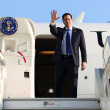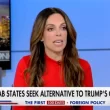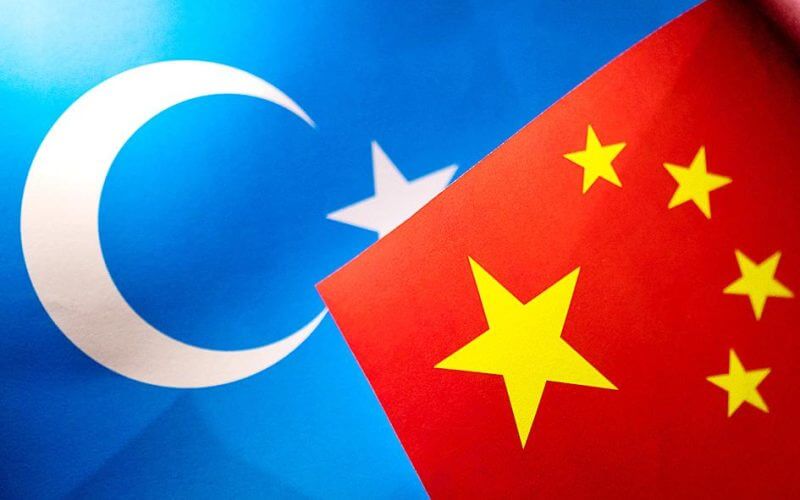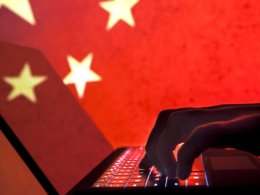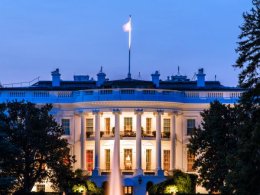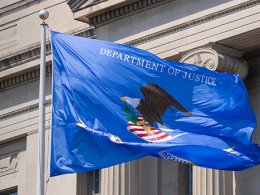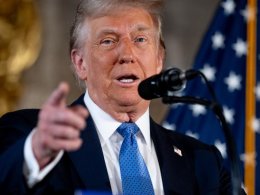The United States on Tuesday begins enforcing the Uyghur Forced Labor Prevention Act (UFLPA), which requires companies that import goods from China’s Xinjiang region to provide “clear and convincing evidence” that no component was produced with slave labor.
The controversial rule has upset the Chinese government, which has characterized U.S. claims about its oppression of members of the ethnic Uyghur minority as “vicious lies.” But the act is also causing concern among some U.S. businesses, which say the federal government has not provided sufficient guidance on steps they must take to avoid having imports seized at the U.S. border.
Experts warn that compliance with the law will be difficult for many U.S. businesses because of the complexity of their supply chains and the lack of reliable third-party auditors in China who can testify that specific goods are not made with forced labor. Some are concerned it will force businesses to abandon suppliers in the region entirely.
“It is very likely that the UFLPA will amount to an effective ban on imports from Xinjiang and products that have Xinjiang-produced elements in their supply chains,” Cullen Hendrix, a nonresident senior fellow at the Peterson Institute for International Economics, told VOA.
Hendrix, who is also a professor at the Josef Korbel School of International Studies at the University of Denver, said that while some programs requiring importers to “prove a negative” have worked, the barriers to success are higher in Xinjiang.
“Other third-party certification schemes have been at least partially successful at proving negatives — for instance, that diamonds were not sourced from active conflict zones or mined with forced labor,” Hendrix said. “But those certification schemes typically weren’t being implemented in places like Xinjiang, which is perhaps the world’s most restrictive information environment.”
Hendrix added, “Third-party audits can work only if the auditors are allowed to do their jobs. They won’t be. For some, that is a feature, not a bug. Some want the policy not just to prevent products made with forced labor (from entering) the United States but to punish and to name and shame.”
The UFLPA was passed with bipartisan support in Congress in December 2021 and signed into law by President Joe Biden. Tuesday marks 180 days since the bill was signed, the deadline for implementation.
The measure is meant to respond to the U.S. government’s determination that China is engaged in genocide in Xinjiang. The U.S. claims the Chinese Communist Party is attempting to destroy the Uyghur people and their culture through mass surveillance, mass imprisonment, forced sterilization, forced intermarriage with non-Uyghurs and other measures.
The U.S. has claimed that the mass imprisonment program includes forced labor in factories and on farms.
The Chinese government has angrily denied the charges of genocide, but the United Kingdom, the Netherlands and Lithuania, as well as organizations such as Amnesty International, Human Rights Watch and the United States Holocaust Memorial Museum, have reached similar conclusions to the U.S. government.
The UFLPA takes the unusual step of treating all goods with a connection to the Xinjiang Uyghur Autonomous Region of China as the product of forced labor unless the importer can provide “clear and convincing evidence” that they are not.
The U.S. has provided some instructions to importers about how to go about providing the evidence the law requires. On June 13, the U.S. Customs and Border Protection Service (CBP) issued a 17-page document called “Operational Guidance for Importers” that provides general guidelines for all goods and specific guidelines for cotton, tomatoes and polysilicon used in solar panels, all of which are widely produced in Xinjiang.
However, that leaves a large number of importers of other goods without specific guidance on the kind of evidence the government would require them to present in order to avoid having their goods seized. Another piece of guidance from the Forced Labor Enforcement Task Force (FLETF) is expected to be released Tuesday, the same day that enforcement begins.
In a statement provided to VOA, U.S.-China Business Council President Craig Allen said the late release of the FLETF plan means “companies will find out what they have to comply with the day that they have to comply.”
He added, “We are expecting implementation to be messy. CBP has had to scramble to implement a complex piece of legislation in only six months. They have released limited information beforehand, and companies won’t know many of the details of what they must comply with until the date they must comply. This will create significant uncertainty, further snarl already stressed supply chains and contribute to inflation.”
Attorney Richard A. Mojica, who leads the customs practice at law firm Miller & Chevalier in Washington, told VOA that getting up to speed on UFLPA compliance will be more difficult for some businesses than others.
“It may be easier for a solar company to say, ‘Clearly Customs is concerned about polysilicon, so we need to show progress around polysilicon,’” he said.
However, Mojica, a former CBP headquarters attorney, said things will be much less simple for an automaker with hundreds of suppliers.
“The company doesn’t really know where to start,” he said. “And it's trying to find a way to prioritize and conduct due diligence in a way that is good enough, without knowing exactly what ‘good enough’ looks like.”
In every case, though, companies should expect UFLPA compliance to be an ongoing task
“It's going to require constant maintenance, because the (bill of materials) of a particular product can change at any given time,” Mojica said. Suppliers, he added, also frequently change. “So, the risk analysis changes, and this is … something you have to be monitoring all the time.”
China has repeatedly warned the U.S. of negative consequences if UFLPA is enforced, something Chinese embassy spokesperson Liu Pengyu reiterated in a statement emailed to VOA.
“The so-called allegations of forced labor in Xinjiang are nothing but vicious lies concocted by anti-China forces,” he said, accusing the U.S. of working to undermine China’s economic development.


